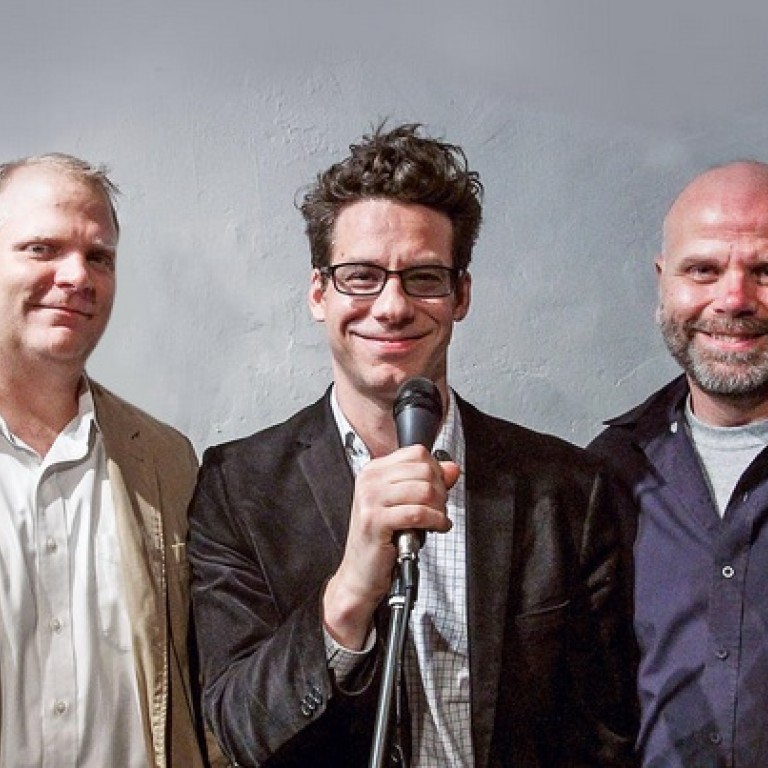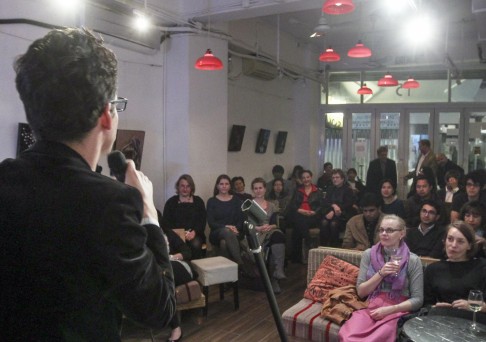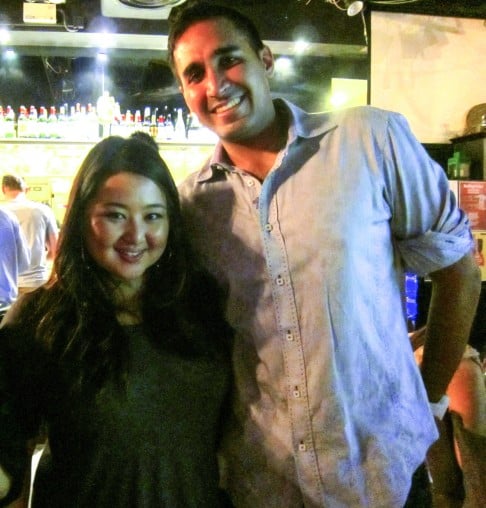
Storytelling groups are encouraging Hongkongers to share experiences
Storytelling groups are encouraging Hongkongers to share their personal experiences - some of which are truly remarkable, writes Bernice Chan
Is there anyone out there who's worked as a human cannonball? Hong Kong seems an unlikely home for such a candidate, yet one of our residents has done just that. A petite brunette, she described her erstwhile career in Reykjavik, Iceland, at a Hong Kong Storytellers meet-up last month.
One man admitted to helping to kidnap a baby, while another loved flying, knew a great deal about planes and yearned to be a pilot - but had been overcome by bouts of depression when trying to qualify.
I started off with a story I didn't like sharing, and it provided some release
The event might easily have been called True confessions: all were personal stories, delivered with verve after some coaching at workshops run by founders David Young and Tom Tiding. The pair started organising Storytellers sessions two years ago, as a way to inspire people to open up and connect with each other.
Tiding, a lawyer, was keen to introduce the format to Hong Kong because he found conversations tended to be repeated over and over: "What do you do? Where are you from?"
"Hong Kong's one of those towns where people need to talk to each other more. The workshops give licence for deeper conversation," he explains. "The stories you hear contain a wealth of experiences. It's about sharing something about your life that other people might want to listen to. For storytellers, it's making them think about telling a story. They learn that they have a responsibility to tell it right."
Tiding became hooked on storytelling after attending a similar event in Washington. "I loved it - I was laughing the whole time. After the show, one of the producers came up to me - she must have seen me enjoying it - and encouraged me to get up there and tell stories with the help of workshops and classes. Now I get a real high from storytelling."
An occasional stand-up comedian, Young was disappointed to find there were no avenues for storytelling when he arrived Hong Kong in 2007. He met Tiding at a local comedy club in 2012. They clicked immediately and it wasn't long before they were organising story nights.

Would-be storytellers usually sign up for a series of workshops where they get pointers on developing their material and presentation, before being offered a suitable slot. Storytellers stage between eight and 10 sessions each year, each with a different theme. This month's event revolved around the idea "not funny"; previous themes included "crossed wires" and "starting over".
About half of the workshop participants are local Chinese, but only a handful have managed to face an audience so far. "They have good stories, but aren't as comfortable telling them in English. We want to do more events in Cantonese, and eventually hope to see locals telling their own stories," Tiding says.
"It's interesting to see how the stories evolve because we give feedback. Some people are too nervous to tell stories in front of an audience they don't know, so workshops provide a closed environment. But anyone can attend our [Storytellers] events."
Tiding himself delivered a remarkable tale at this month's session, telling of how he tried to steal a baby with his mother.
He was just 11 years old, and she was working as a truck driver; while making a stop, they met a couple so high on drugs that they were physically mistreating their baby. His mother decided to kidnap the tot, but they were discovered by the father; fortunately, the man was so stoned that he merely asked for their contact details.
The parents got in touch after about a year - with an offer to give up their toddler for adoption. The child became Tiding's brother.

Speak, presented by Chance Entertainment, is a similar group operating in parallel with Hong Kong Storytellers. Formed by school friends Corie Chu Chui-wan and Tanvir Singh, the venture hosts themed open-mic sessions each month.
Both groups support each other, as the community is very small, says Chu, a film publicist. "Hong Kong Storytellers do workshops, but some people don't want to be coached, or already have Toastmaster experience. They want to tell the story exactly the way they want to."
Between five and seven people sign up to talk at each Speak evening, and time is given afterwards for impromptu participation - anyone in the audience can get up and tell a story, play a tune or recite a poem.
It can be cathartic for the storytellers, Chu finds. Among the more memorable tales is that of a Hong Kong man who recounted how he came out as a transvestite to his friends when he was a boy. They were so shocked that it made him very uncomfortable about his inclination for cross-dressing, until he met another transvestite who eventually became a mentor.
"These are raw stories that inspire people to share what they are comfortable with," Chu says.
Amy Lewis, a university academic adviser, has attended many Storyteller events. This year, she decided she would stand up and deliver one of her own stories. Lewis's choice of subject could not have been more private: the experience of finding out her husband was having an affair. "I decided to start with a story I didn't like sharing," she says, "and it provided some release."
Lewis spent three weeks working on her material, and notes that it helped to be in the right frame of mind to deliver it.
She was encouraged by how people came up to talk to her after the presentation: "It was affirming that they got something out of the story and enjoyed listening."
Jeanne Lambin, who teaches improvisational theatre and helps prepare participants for Storytellers events, also cites the audience response as the main reason she enjoys spinning tales.
She feels rewarded when people want to share their stories after listening to her. "It's an incredible experience telling fun, sad and difficult stories in front of people. It's really addictive," she says.
Lambin's latest tale was about buying a coffin for her father, who she fondly recalls as a man with a sense of humour.
"The story is funny in retrospect because you feel like the funeral industry is preying on you. But it's really about our relationships with our loved ones," she says. "I would have been fine burying my father in a pine box, but the world looks on you as a bad child if you only buy the cheapest coffin."
Sifting through memories to pull a story together is sometimes painful, and Lambin says she has been brought to tears.
"It can be a punishing process, but you have to organise [your thoughts] to tell the story. What does this experience mean to me? What will people get about me and the universal experience?" she says.
"It's not therapy, but the act of telling is therapeutic. You don't want to go to a room full of people and blurt something out. Therapy offers a safe environment [for opening up] but with storytelling people may not like your story, or they aren't paying attention or it's not funny. But it's cathartic to have other people respond to your story."
Chu agrees that storytelling can be a useful outlet in a stressful city like Hong Kong. "Some people just need to be listened to. They may not be comfortable telling their family or friends. Another aspect about storytelling is that there's no judging - the person may not want to go to therapy, but they just want to tell their story point blank.
"I've seen transitions take place in people. After they have told their story, you can see they feel lighter and happier," she says.

